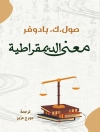This book discusses the issues of inequality and marginalization in India. The first section of the book contextualizes sociological traditions for the scrutiny of subaltern discourse on discrimination. The chapters in the section explore self-identity, ‘margins’ in sociological traditions, subalternity and exclusion, citizenship issues of de-notified tribes, the role of religion for scheduled tribe Dalits and Ambedkar’s ideas on tribes. The second section deals with the political economy of higher education, health and employment. The efforts of BR Ambedkar and the consequences of those efforts, his critique of education policies during British time and its alteration for independent India have been meticulously dealt with. The third section illustrates an application of theoretical understanding through narratives of labour bondage in Varanasi, sanitation workers in Mumbai and rickshaw pullers in Delhi. The last section establishes that unequal access to resources is a consequence of discrimination and marginalization induced by social identities. The book argues for equitable access to resources and opportunities to ensure health equity. The audience for this publication includes academics, researchers, health professionals, policymakers engaged with discrimination, exclusion, marginalization and inequity in health.
Содержание
Section I: Theorising Discrimination- Humiliation, Exclusion and Marginalisation.- Chapter 1. Indian thought and Social Science on the Travails of Self-identity (William S. Waldron).- Chapter 2. The Sociological Traditions and Their Margins: The Bombay School of Sociology and Dalits (P.G. Jogdand).- Chapter 3. Caste Oppression In Brahminic Epistemology: A theological perspective (Avatthi Ramaiah).- Chapter 4. The idea of subalternity and Dalit Exclusion in India (Yagati Chinna Rao).- Chapter 5. Citizenship, Chronic Poverty and Exclusion among De-notified Communities: A case study of Kalbeliya of Rajasthan (Navin Narayan).- Chapter 6. Critique of the Spirit: Popular Christianity and wellbeing among Scheduled Tribe Dalits (Stephen Christopher).- Chapter 7. Excess Child Mortality mong Adivasis, Dalits, and Other Backward-Castes (Bali Ram).- Chapter 8. DR. B. R. Ambedkar And Scheduled Tribes Of India: A Critical View (Arjun Rao Kuthadi).- Section II: Social Justiceand Affirmative action policy.- Chapter 9. Positive Discrimination and Affirmative action for Higher Education (RK Kale).- Chapter 10. Why Dr. Ambedkar Demanded Separate Settlements for the Depressed Classes? (Avatthi Ramaiah).- Chapter 11. Ambedkar’s thought on Health (Sanghmitra S Acharya).- Chapter 12. Effect of Reservation Policy in Government Employment (Mashkoor Ahmad).- Chapter 13. Political Economy of expansion of higher education: Implications for Unequal Access in India (Khalid Khan).- Section- III Occupation, employment and dignity.- Chapter 14. Freedom From Labour Bondage: A Case Of Dalit Empowerment From Varanasi, Uttar Pradesh, India (Archana Kaushik).- Chapter 15. Social Exclusion faced by Urban Sanitation Workers from Rukhi and Balmiki community in Mumbai (Swinder Kaur).- Chapter 16. Life of the Theyyam Artists at Kerala: Their Livelihood, Health Condition and Social Status (Keerthi T.V).- Chapter 17. Marginalization, Migration and Urban Informal Sector: In-depth Analysis of Cycle Rickshaw Pullers in Delhi (Dr. Naresh Kumar).- Chapter 18. Health Inequalities: An Embodiment of Socio-economic Marginalization (Prachinkumar Ghodajkar).- Chapter 19. Non Standard job and quality of health services (Santosh M).- Chapter 20. Structural and Social Factors and Functioning of Frontline Women Health Workers: An analysis of selected villages in Uttar Pradesh (Sonia Verma).
Об авторе
Raosaheb K. Kale is an educationist of eminence. He taught at the School of Life Sciences, Jawaharlal Nehru University (JNU), New Delhi and superannuated from there. He is a recipient of ICMR Award (1996) for his original contribution to the research in Radiation and Cancer Biology and other awards in recognition of his contribution to education. Apart from publishing more than 150 research papers in national and international peer-reviewed scientific journals of high repute, he has also written on social issues. His latest book entitled, ‘Indian Higher Education: A Perspective from the Margin’, showcases this. Professor Kale has served JNU in various capacities as the dean of Students, the chief proctor and the dean of Life Sciences. He has also served in the committees constituted by the statutory bodies, universities and institutions to develop the welfare policies for SCs and STs and their implementation. He has established the Central University of Gujarat, as its first Vice-Chancellor. He has also served as the chairman, India Institute of Dalit Studies, New Delhi, and is presently the chairman of Board of Management, Indira Gandhi Delhi Technical University for Women, Delhi.
Sanghmitra S. Acharya is a professor in the Centre of Social Medicine and Community Health, Jawaharlal Nehru University, New Delhi. She was the director, Indian Institute of Dalit Studies, New Delhi, from 2015 to 2018. She was a visiting fellow at CASS, China; Ball State University, USA; UPPI, Manila, The Philippines; East-West Center, Honolulu, Hawaii; and University of Botswana. She has been awarded fellowships and grants by UNFPA, Asian Scholarship Foundation, USEFI, ICSSR-CASS and SICI. She has chaired sessions and delivered keynote addresses in conferences, seminars and policy meetings in India and abroad. She has authored three books and about fifty articles on health and discrimination. Her recent work includes co-edited books titled ‘Marginalization in Globalizing Delhi-Issues of Land, Labour and Health’; ‘Health, Safety and Well-Being of Workers in the Informal Sector in India- Lessons for Emerging Economies’, and ‘Caste, COVID-19 and Inequalities of Care- Lesson from South Asia’ published by Springer.












